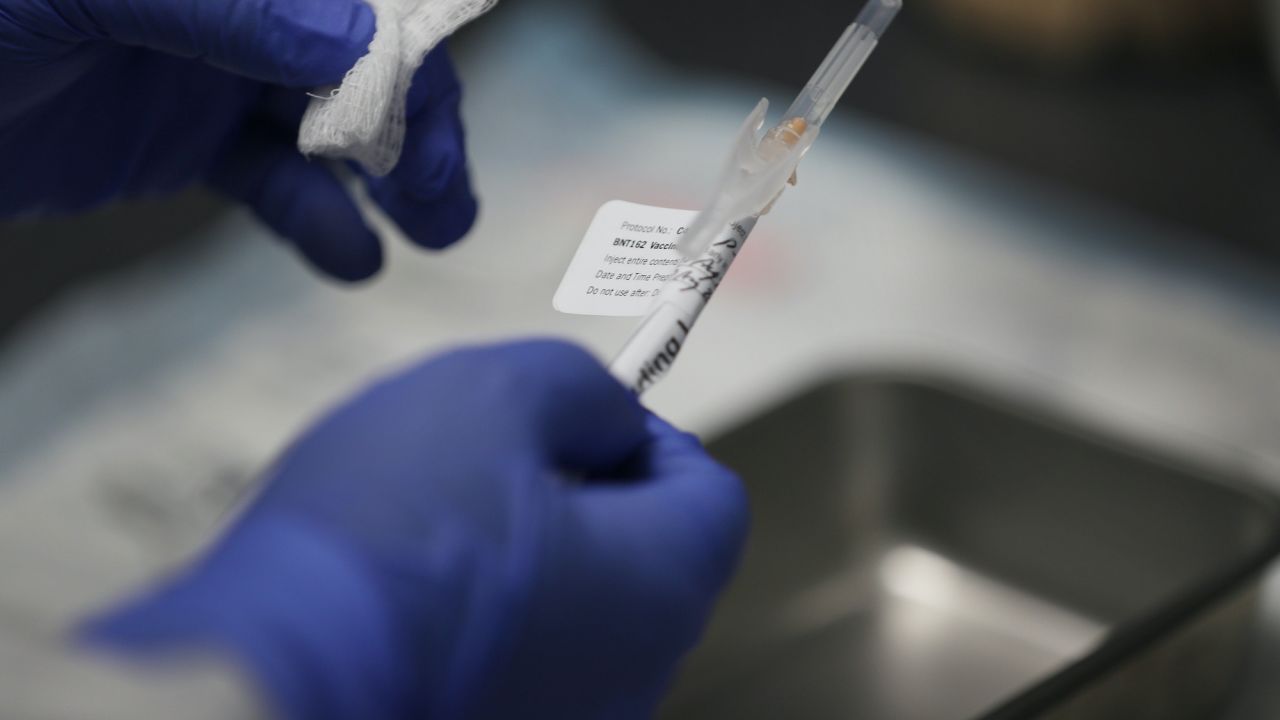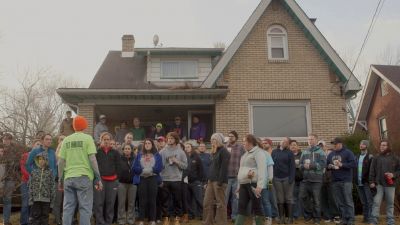
HOLLYWOOD, FLORIDA - AUGUST 07: RN Jose Muniz prepares a COVID-19 vaccination at Research Centers of America on August 07, 2020 in Hollywood, Florida. Research Centers of America is currently conducting COVID-19 vaccine trials, implemented under the federal government's Operation Warp Speed program. The center is recruiting volunteers to participate in the clinical trials, working with the Federal Government and major Pharmaceutical Companies, that are racing to develop a vaccine to potentially prevent COVID-19. (Photo by Joe Raedle/Getty Images)
First Response
Over three thousand people were reported to have died in America from coronavirus yesterday. That means this list of the deadliest days in American history needs to be updated, with Wednesday now at #4, above 9/11. Youyang Gu estimates that we will reach herd immunity, at which point the virus will peter out, sometime around summer 2021, once something like 100 million Americans are fully vaccinated.
That number, 100 million, is important. You don’t need everybody in the nation to get vaccinated in order to reach critical mass, though it’s a noble goal (Chicago has set it, for example). The more efficacious the vaccine is, the fewer people have to be vaccinated to account for the fact that it doesn’t work in some people. But the efficacy rates for the Pfizer (which should be approved for U.S. use today) and Moderna vaccines pushes over 90 percent. Even the AstraZeneca shot, at 70 percent effectiveness, is pretty good. You just need to end up with more people vaccinated. On those three shots alone, the U.S. is guaranteed many more doses than needed to reach herd immunity.
Now, there are things to work out, of course. The AstraZeneca vaccine does not appear to be effective at stopping transmission from asymptomatic carriers. There are some allergy concerns that have been picked up in the UK with the Pfizer vaccine, as they begin to administer it. There are significant short-term symptoms from the vaccines, particularly after the second dose.
All of that needs to be studied. But it all points toward getting more of the vaccine into those who can accept it faster. If transmission is a concern then more people have to get vaccinated so transmission is incidental and doesn’t lead to actual symptoms. If allergies restrict some from vaccination then you want herd immunity faster to let the disease die out. More people getting the vaccine in a shorter period of time is the best possible outcome for public health.
It’s also the best possible outcome for the economy. And that brings us to the lumbering COVID relief talks.
There is no economic multiplier you can possibly think of that would be more powerful than reaching herd immunity faster. One month earlier getting back to normal means one month of shops open at full capacity and music venues and bars and restaurants. The reward for economic activity and jobs is in the trillions of dollars, seriously. And that’s worth investing in. It may be the only thing worth investing in at this point.
As noted yesterday, the stimulus talks have gone off the rails. There’s no legislative language from the bipartisan dealmakers, just top-line summaries. State and local aid and corporate liability protections continue to be sticking points. And now there’s a dispute over whether to give checks to a lot of people or boost weekly unemployment benefits to those in the greatest need.
There is a consensus, however, on spending money to distribute the vaccine. And there’s a general consensus on the spending level of around $900 billion. And we know that any dollar of spending on the vaccine that gets people dosed up faster has a huge multiplier.
A good solution, then, would be to spend a lot of money on vaccines. And this can translate into money for people as well. First of all, we need a lot more for vaccine production. Right now we have a bunch of purchase guarantees for the vaccine and associated materials, but under the Defense Production Act we could direct factories to convert fully to making things needed for vaccines. There would be no greater purpose right now than this. The DPA requires the government to pay those manufacturers for their production, so you could devote a big chunk of money to that.
Then, logistics and distribution. States and cities should be fully reimbursed for any of those costs. A Vaccine Jobs Corps of nurse practitioners and database operators and phone bankers (remember, everyone requires two shots, so somebody is going to have to remind people) could be useful, and we have millions of people who are out of work or on furlough who need short-term jobs at good wages. That helps solve a chunk of the unemployment problem.
Finally, we need to pay people to get the vaccine. And we need to pay them a figure commensurate with the $1,200 checks that were initially offered in the first CARES Act. It doubles as a one-time economic boost and it goes toward a common purpose. Those with allergies (if that’s a reason that they cannot get the vaccine) should be paid to quarantine at the same amount. Vaccine takeup is hovering around 50 percent in polls; that will jump as its efficacy is demonstrated. But once herd immunity is hit you can phase out the payments; they should be structured to incentivize getting the vaccine as early as it’s made available.
When you put all this together, you could probably come up with a package that is similar to the $900 billion being discussed but entirely focused on getting vaccinations done as fast as humanly possible. I know that economists say things will pay for themselves all the time, but this absolutely will, if it leads to herd immunity more rapidly.
If Mitch McConnell wants to reject this and submit to a 9/11 every day for the next couple months as we trickle out a vaccine, force him to do that. There was an Operation Warp Speed for the vaccine development and not for the distribution. The scientific achievement is useless if it can’t get to people’s arms fast enough to save lives. To me this is a total no-brainer.
Days Without a Bailout Oversight Chair
258.
Today I Learned
- America has tragically abandoned its citizens to go it alone during the deadliest phase of the pandemic. (NBC News)
- Shoplifting has increased during the pandemic. (Washington Post)
- Biggest increase in first-time unemployment claims in months. (Economic Policy Institute)
- Canada has approved the Pfizer vaccine. I expect the U.S. to do so today. (Associated Press)
- The Chinese state-owned Sinopharm has a vaccine with 86 percent effectiveness. (Washington Post)
- This is a case of the tyranny of aggregates, consumer spending is way up in 2020 among a certain class of people, and it ignores the pain at the bottom. (CNBC)
- How Robinhood is a pandemic villain. (TK News)
- The enduring presence of the empty, wide-body jet-using international flight. (Wall Street Journal)




